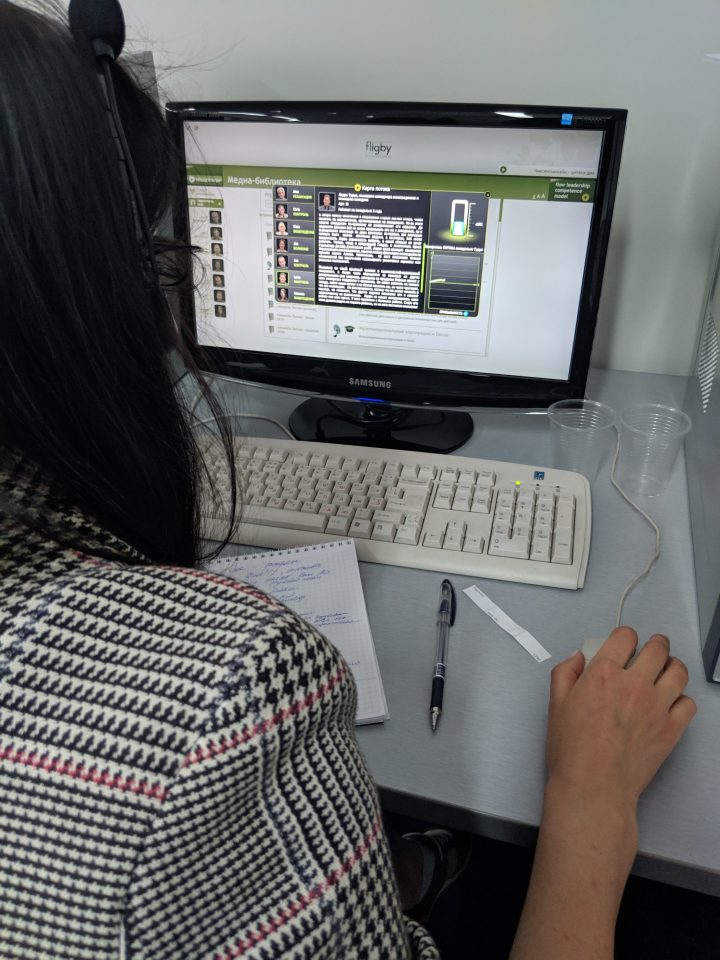Since the publication of ‘Missing Link Discovered,’ Zoltan Buzady (Ph.D., Corvinus University of Budapest, Hungary) and Paul Marer (Ph.D., Professor Emeritus, Hungary) have continued researching the implications of the theory of Flow for effective leadership, elaborating on and expanding the book’s first two chapters. This Working Paper is a progress report on that continuing research; the first of two…
Category: Missing Link Discovered
How can we test improvement over time in crucial leadership skills?
The FLIGBY serious game is an interactive leadership simulation where participants’ leadership skills are reliably assessed against the 29 factors in FLIGBY’s Leadership Skillset. The competencies themselves have been rigorously defined by expert development teams and mapped to several validated competency frameworks such as the Executive Core Qualifications (ECQ) System and Gallup’s StrengthsFinder framework, the…
FLIGBY Players’ Learning Diary
From the FLIGBY ‘play and learn’ diary of Erika (Business Student, Finnland): INTRO Most of us expect that stars on the stage (let it be a concert hall or a theatre) are in Flow and most probably also the professors should be shining in a focused way once delivering the lecture. What about the students…
2nd improved and new edition of: Missing Link Discovered – Integrating Csikszentmihalyi’s Flow-theory into Management and Leadership Practice by using FLIGBY – the Official Leadership Flow Game With a special essay contribution by Mihaly Csikszentmihalyi
Flow Leadership in Business – The optimal experience
One might think that it’s possible to put together a super team just by choosing individuals who represent great skills. But they forget, that after a while individuals do bring their own personality and their personal style to the group work. For example, one person is particularly keen on time management, the next one on values…
Book Review: Missing Link Discovered
MISSING LINK DISCOVERED by P. Marer, Z. Buzady, and Z. Vecsey Review by B. Gourley So, you’re a leader and you’ve experienced Flow. Self-criticism vanished. Time fell away. The task was challenging, but the performance felt effortless. Your attention was rapt, and any craving for distractions disappeared. Maybe you even had a spate of creativity.…
Leadership, Flow and Ethics
Last month, Prof. Paul Marer[1] – already mentioned in my previous blog entry about Good Work – gave an interesting presentation in Prof. Mihaly Csikszentmihalyi’s Positive Psychology class at Claremont Graduate University (California). This post is an excerpt from his presentation about leadership, Flow and ethics, with an emphasis mainly on the third topic. Csikszentmihalyi…
Good Work
Have you ever wondered whether the work you, your colleagues or your subordinates do can be considered as “good work”? I think I am not the only one who actually doesn’t know what the term “good work” means. Back in the late 1990’s and the early 2000’s Prof. Csikszentmihalyi alongside with Howard Gardner and William Damon has investigated…
The Theory of “Flow” And Its Relevance for Organizations – 3rd part from the working paper
Part 2 – Leaders versus managers The changing technological and cultural context of managing / leading This section offers a few thoughts on the impact of technology and demographic changes for managing and leading employees and other stakeholders. A subsection discusses the implications of technological and demographic changes for employee training and learning. 1.…
The Theory of “Flow” And Its Relevance for Organizations – 2nd part from the working paper
Part 1 – “Are you satisfied with your workplace?” Leaders versus managers Before delving into our main topics, let us detour briefly by addressing a controversy in the organizational literature: the presumed similarities and differences between “managers” and “leaders”. The subtitle of our book (which we are partly summarizing and partly extending here) is “Integrating…




